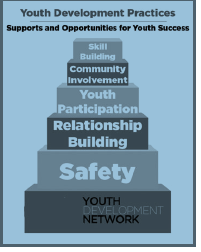Youth development through CSR
S M Mustafa-Al- Mamun

Corporate Social Responsibility (CSR) is a company's commitment to improve a community's welfare by creatively using corporate resources and by engaging in optional business practices. Every big company, by utilizing its workforce and scarce resources effectively, has the ability to have a positive impact on the society. Alongside the government's youth programs, big corporations and tech giants can help empower society's youth to enhance the human capital of a country's workforce.
In Bangladesh, youth is defined as citizens aged between 18 and 35. Given this definition, our developing nation consists of a youth population of around 47.6 million--one third of the country's total population. However, due to a talent gap in the job market, our country is unable to utilize this huge untapped resource. The root of the problem lies in the lack of the youths' career-oriented knowledge. There is a stark mismatch between what the employer wants and what skills the individual developed during his/her education. Thus, it is imperative to integrate programs or trainings in academia that can better cater to the specific needs of today's industries.
In addition to the government's initiatives to facilitate young students and entrepreneurs with opportunities, the contributions of big corporations, especially the tech giants, is equally important. Needless to say, a highly skilled workforce will boost the productivity of corporations which in turn will contribute to the economic growth of the country. A few number of tech companies have come forward for youth empowerment and skill development. Many corporations have designed trainings and exposure trips to equip freshly graduated students with relevant industrial experience. The positive results of such efforts have clearly illustrated that CSR activities can pave the way to a solid workforce and in turn reduce the current talent gap.
There is a myriad of ways in which CSR activity can be used as an instrument for youth development.

Youth development through CSR
One of the effective ways is to train the young individuals at the companies' headquarters. Through interactions and guidance from top industry professionals, the participants can truly comprehend the industrial trends and understand how to cope with the ever-evolving technologies. This in turn will build relevant skills and make the young generation more resilient to changes in the job market. An example of a tech company which gives great importance to CSR is Huawei. Their global flagship and most popular CSR program is 'Seeds for the Future', which is aimed to prepare undergraduate engineering students for the job market. The program has been conducted in the country since 2014 and has been reputed to provide young ICT talents with intensive training centered at the Huawei headquarters in Shenzhen, China.
I hope that more corporations follow the example of Huawei. I have seen first-hand on how such a program has helped advance the knowledge of my students in the department of EEE, University of Dhaka. Once I visited China with 10 students selected from DU, BUET, RUET, CUET and KUET as their mentor. On returning back, I could see how well aware they were of the recent technological innovations at Huawei.
They now have completely new outlook and superbly boosted with confidence than ever before. They were given training on Telecommunication & ICT Industry, they had the opportunity to do hands on experiments on setting up base station. Also, they shared their views on the potential of IoT and artificial intelligence with confidence and these are very closely connected to their syllabus.
It is impressive that Huawei has more than 80,000 dedicated employees who are continuously working in the R&D sector. It does not come as a surprise that 10 per cent of this tech giant's revenue is spent on research. 45 per cent of Huawei's total resources are channelled into innovative projects and as a result, 74,307 global patents were approved by December 2017. Hence, Huawei is a leading example of how a corporation can both drive innovation and benefit society at the same time.
Digital Bangladesh is no longer a dream but a reality now. To fulfil the 'Vision 2021', Bangladesh needs to implement advanced technology including smart cities, e-governance solutions, IoT, AR, VR, Big Data and so on. I believe, the youth will be the forerunner of such an advancement in the future. Hence, there is no alternative but to train our young population and keep them informed with the state-of-the-art technology. In order to fill the talent gap and build a strong workforce, the Government and the private sector should work hand in hand to facilitate our young generation with effective stepping stones to the advanced world of the future.
Prof SM Mustafa-Al-Mamun, Chairman, Department of EEE, Dhaka University